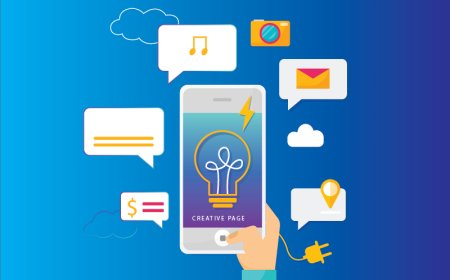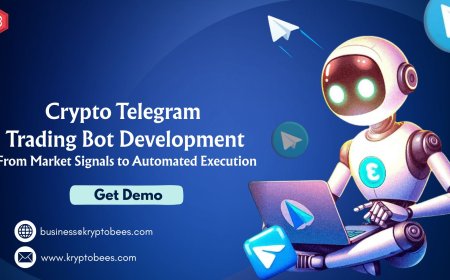Generative AI for Business: Opportunities and Challenges
Explore how Generative AI for Business brings innovation, improves operations, and presents unique challenges for modern enterprises.

Generative AI has emerged as one of the most transformative technologies of the 21st century. According to McKinseys Global AI Survey in 2023, over 60% of businesses reported using AI in at least one function of their operations, with generative AI being a key area of focus for innovation. By enabling machines to generate new content, designs, code, and even data models, generative AI holds the potential to revolutionize a variety of industries.
Businesses of all sizes, from startups to established corporations, are exploring custom generative AI solutions to gain competitive advantages, enhance creativity, and optimize their operations. However, with its numerous benefits come several challenges that need careful consideration.
This article explores the opportunities and challenges businesses face when adopting generative AI technologies. Additionally, we will examine how generative AI development companies are playing a pivotal role in helping businesses integrate AI into their operations effectively.
What Is Generative AI?
Definition and Capabilities
Generative AI refers to AI models that can generate new content, such as text, images, music, or even video, based on input data. Unlike traditional AI, which analyzes and predicts based on existing data, generative AI creates entirely new outputs. Some well-known examples include:
-
Text generation: AI models that write articles, blogs, or customer service scripts (e.g., OpenAIs GPT-3).
-
Image and video creation: Tools like DALLE and MidJourney generate visual content based on text descriptions.
-
Code generation: AI systems that assist in writing code or creating software architecture, such as GitHub Copilot.
-
Synthetic data generation: AI that generates realistic data to train other AI models.
Generative AI is trained on vast datasets and uses complex algorithms such as GANs (Generative Adversarial Networks) and transformers to produce novel outputs.
Applications in Business
Generative AI has found applications across various business sectors:
-
Marketing: AI can generate ad copy, product descriptions, and social media content.
-
Design: AI can create product prototypes or suggest creative design elements.
-
Software Development: AI tools can assist developers by generating code snippets or offering coding solutions.
-
Customer Service: AI-powered chatbots and virtual assistants provide customer support with generated responses.
-
Data Analytics: AI generates insights, forecasts, and recommendations based on large datasets.
With all these possibilities, businesses are increasingly turning to custom generative AI solutions to improve efficiency, reduce costs, and innovate in ways previously not possible.
Opportunities of Generative AI for Businesses
1. Enhancing Creativity and Innovation
Generative AI unlocks new creative possibilities for businesses by offering tools to assist in ideation and content creation. For example:
-
Marketing and Content Creation: AI tools can write compelling blog posts, articles, and social media content, saving businesses time and resources. AI can also generate creative marketing campaigns, allowing companies to explore a variety of ideas without the need for human intervention.
-
Product Design: In industries like fashion or automotive design, AI can generate new concepts, designs, and even 3D models that human designers can then refine, reducing the time spent on ideation.
Example:
BMW is using AI to help design the next generation of car interiors by feeding the system data on materials, aesthetics, and ergonomic standards, allowing for innovative designs that align with consumer preferences.
2. Improving Operational Efficiency
Generative AI can automate repetitive tasks, which reduces human error and frees up employees for higher-value work. Some examples include:
-
Automation of Content Creation: AI-generated copy for websites, newsletters, and reports can be produced at scale, reducing time and cost associated with manual content creation.
-
Code Generation: AI tools like GitHub Copilot can assist developers in writing code faster, potentially reducing time-to-market for software products.
-
Customer Support Automation: AI-powered chatbots can generate responses to customer queries, reducing the need for human agents and providing 24/7 customer support.
Example:
Shopify is utilizing AI to generate personalized product recommendations for customers. This helps businesses create personalized shopping experiences without manual intervention, boosting sales and customer satisfaction.
3. Personalizing Customer Experience
Generative AI enables businesses to tailor content, services, and products to individual customer preferences, enhancing customer engagement.
-
Dynamic Content Generation: AI can create personalized email marketing campaigns, website landing pages, and even product suggestions based on user data.
-
Customer Insights: AI models can predict customer behavior, helping businesses offer personalized products or services at the right time.
Example:
Netflix uses AI to generate personalized movie and TV show recommendations based on viewing history, keeping customers engaged and increasing retention.
4. Cost Reduction
By automating tasks, reducing errors, and speeding up workflows, generative AI can help businesses save costs.
-
Operational Cost Savings: With automation tools like AI-based chatbots and code generators, businesses can cut down on the need for large teams to perform repetitive tasks.
-
Outsourcing Costs: Generative AI can help companies reduce the cost of outsourcing by generating the required outputs internally, such as customer service scripts or product copy.
5. Data-Driven Decision Making
Generative AI can help businesses analyze large datasets and generate insights, predictions, and reports that drive better decision-making.
-
Predictive Analytics: By generating models that predict market trends, customer behavior, or product demand, businesses can adjust strategies accordingly.
-
Scenario Simulation: AI can generate simulations based on historical data to help businesses anticipate potential challenges and devise solutions.
Example:
Tesla uses AI to simulate and generate data for self-driving car models, allowing for better decision-making when designing algorithms for autonomous vehicles.
Challenges of Generative AI for Businesses
1. Data Privacy and Security Concerns
Generative AI models require access to vast amounts of data to train and generate meaningful outputs. This creates privacy risks, especially when handling sensitive information such as customer data, financial records, or intellectual property.
-
Data Privacy Regulations: Businesses must navigate data protection regulations such as GDPR and CCPA when using AI for content generation or personalized services.
-
Data Leaks: AI models trained on large datasets may inadvertently generate outputs that reveal confidential information.
2. Quality Control and Oversight
Generative AI systems are powerful, but they require careful oversight to ensure the generated content is of high quality and aligns with business goals.
-
Inaccurate Outputs: AI can generate content or insights that are irrelevant or incorrect. This necessitates ongoing human review to ensure quality.
-
Ethical Concerns: Generative AI may produce biased or inappropriate content, which can harm a brands reputation.
Example:
Googles AI Content has faced criticism for producing biased or inaccurate outputs. This illustrates the importance of quality control in generative AI applications.
3. High Initial Investment
Developing and implementing generative AI solutions can require significant upfront investment in infrastructure, data collection, and talent acquisition.
-
Infrastructure: Running AI models requires substantial computational power, which can be expensive for businesses without the necessary resources.
-
Talent: Hiring skilled data scientists and AI experts to develop and implement custom generative AI solutions can be costly and time-consuming.
4. Integration with Existing Systems
Integrating generative AI into an existing tech stack can be challenging, especially for businesses that rely on legacy systems or have complex infrastructure.
-
Compatibility Issues: Generative AI models may not seamlessly integrate with existing business tools, requiring additional development and testing.
-
Staff Training: Employees must be trained to work effectively with AI tools, which can take time and resources.
5. Ethical and Legal Issues
As generative AI systems become more powerful, concerns around intellectual property and ethical use grow.
-
Copyright Infringement: AI-generated content may inadvertently violate copyrights if its trained on copyrighted works without proper authorization.
-
Deepfakes and Misinformation: Generative AI technologies can be misused to create fake content (e.g., deepfake videos or misleading news articles), leading to legal and reputational risks.
Best Practices for Integrating Generative AI
To maximize the potential of generative AI while minimizing its challenges, businesses should adopt best practices:
-
Invest in High-Quality Data: Quality data is crucial for training effective AI models. Businesses should ensure they have access to diverse, representative, and accurate datasets.
-
Ensure Ethical Standards: Businesses must establish ethical guidelines for using AI, such as ensuring fairness, transparency, and accountability.
-
Maintain Human Oversight: Even with AI tools in place, human oversight is essential to ensure content quality, decision accuracy, and adherence to brand values.
-
Focus on Security: Implement strong security measures to safeguard sensitive data, especially when dealing with personal or confidential information.
-
Collaboration with Experts: Partnering with a generative AI development company can ensure that businesses get the best AI solutions tailored to their specific needs, leveraging their expertise in developing custom models and systems.
Conclusion
Generative AI presents vast opportunities for businesses to innovate, enhance efficiency, and personalize customer experiences. From content creation to predictive analytics, the potential applications are numerous. However, businesses must carefully consider the challenges, including data privacy, quality control, and integration with existing systems.
By working with a generative AI development company to create custom generative AI solutions, businesses can harness the power of this transformative technology while mitigating risks and ensuring long-term success. As AI continues to evolve, the companies that adapt and leverage these capabilities will be better positioned to thrive in an increasingly competitive landscape.




























